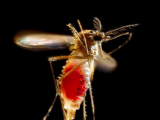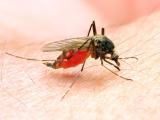Aug 19, 2011
Cincinnati E coli infections spark ground beef recall
Ohio officials announced today that J.B. Meats is recalling about 72,800 pounds of ground beef sold to restaurants in the Cincinnati area that may be contaminated with Escherichia coli O157:H7, according to a joint news release from the state's agriculture and health departments. The recall was prompted by an investigation by the Cincinnati Health Department into two E coli O157:H7 infections. The patients got sick on Jul 20 and 21 and had consumed ground beef on Jul 16 and 17. Public health authorities found a possible link between the illnesses and ground beef produced by J.B. Meats on Jul 15. So far a definitive link between the illnesses and the company's ground beef has not been established, but J.B. Meats said it was recalling the products as a precaution. The products subject to the recall include 5- and 10-pound clear packages of ground beef and ground beef patties processed between Aug 18, 2010, and Aug 18, 2011. They carry the establishment number "EST 1188" with the Ohio Department of Agriculture's inspection mark.
Aug 19 ODA press release
Haiti relief workers suspect cholera reinfections
In its latest update on Haiti's cholera outbreak, the Pan American Health Organization (PAHO) said that though the number of cases is decreasing or stable in most parts of the country, caregivers are reporting patients who were treated at centers over the past month and are returning to the units sick again. Although some returning patients might have had a disease other than cholera, PAHO said more research is needed to determine how long immunity lasts after infection and if reinfections are occurring. The highest case-fatality rates have been in children and elderly people. Some health partners still working in Haiti are having a difficult time with funding, and PAHO said it anticipates that more groups will withdraw from the country. It predicted that Nippes department will be hit the soonest and hardest, with all aid groups scheduled to leave by October unless new funding comes through. The country recently dodged a bullet when Hurricane Emily dissipated before causing serious damage, PAHO said. The number of cases and deaths in the PAHO report is the same as what Haiti's health ministry announced on Aug 14: about 420,000 cases and 5,968 deaths.
Aug 16 PAHO update
Study: Mosquitoes becoming resistant to malaria-preventing bed nets
Long-lasting bed nets imbued with insecticide (deltamethrin), an inexpensive and common preventive measure against malaria, particularly in Africa, have been successful but may be starting to become harmful to the cause, say researchers from Senegal in a study published online yesterday in Lancet Infectious Diseases. Mosquitoes can apparently develop resistance rapidly, and the nets may lead to reduced immunity in older children and adults. The researchers measured the incidence density of malaria cases in a rural Sengalese village from January 2007 to December 2010. A total of 464 clinical malaria attacks occurred during this period. The incidence from January 2007 to July 2008, before distribution of bed nets, was 5.45 cases per 100 person-months (95% confidence interval [CI], 4.90-6.05). After net distribution, the incidence fell to 0.41 (95% CI, 0.27-0.55) from August 2008 to August 2010 but rebounded to 4.57 (95% CI, 3.54-5.82) from September to December 2010. Deltamethrin resistance was detected in 37% of Anopheles gambiae mosquitoes in 2010, and the prevalence of a particular resistance mutation increased from 8% in 2007 to 48% in 2010 (P=0.0009). Malaria occurred more commonly in adults and children over 10 years of age in 2010, accounting for 63% of cases, compared with 33% in 2007 and 2008. "Strategies to address the problem of insecticide resistance and to mitigate its effects must be urgently defined and implemented," the authors write.
Aug 18 Lancet Infect Dis abstract
Accompanying editorial extract


















